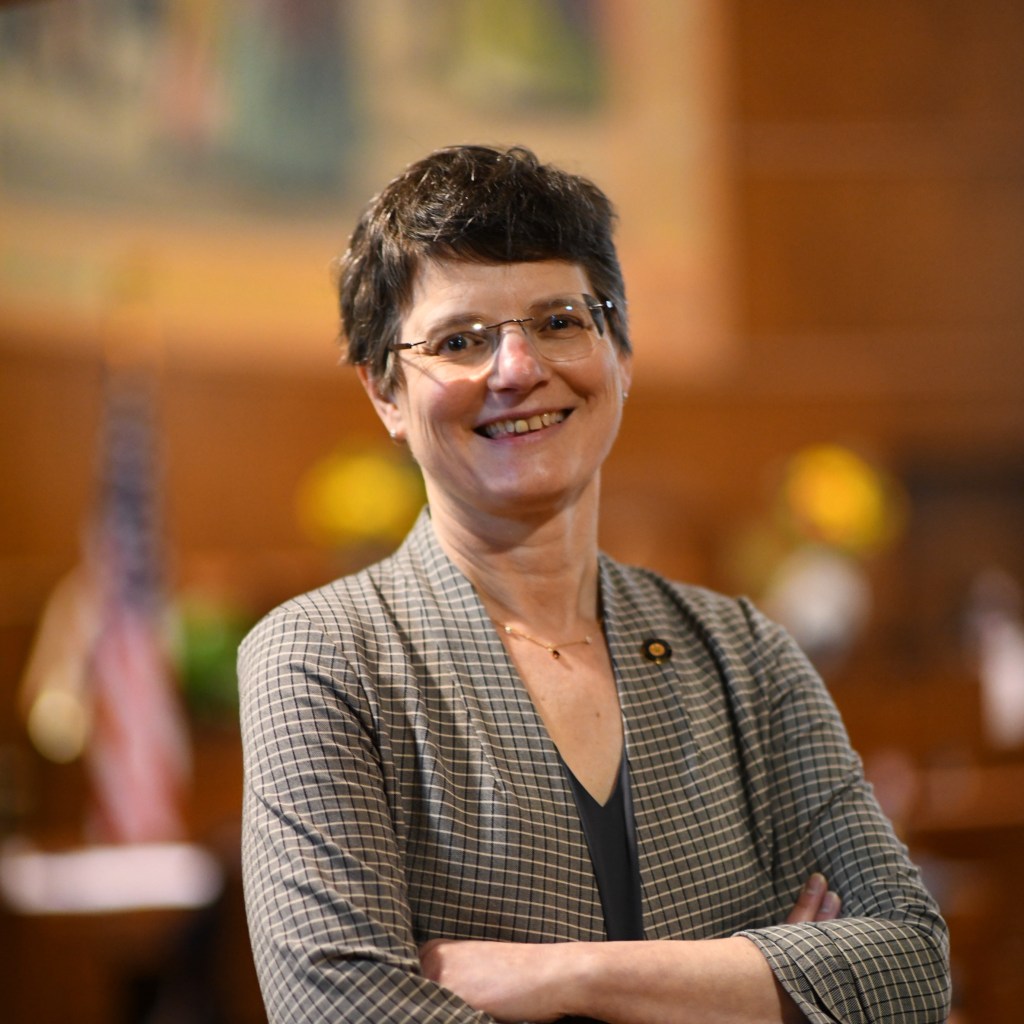Steiner, Boquist face off in state treasurer race
Published 10:15 am Wednesday, October 16, 2024

- Elizabeth Steiner
State Sens. Elizabeth Steiner, D-Portland, and Brian Boquist, R-Dallas, are taking very different paths in their quest to become Oregon’s next state treasurer. Meanwhile, a third-party candidate could become the spoiler in the race, affecting who wins on Nov. 5.
The office is wide open because term limits prevent Treasurer Tobias Read, a Democrat, from seeking reelection again. He’s going for secretary of state instead.
The State Treasury might be an obscure agency to many Oregonians, but its duties are essential to daily and long-term state operations.
The agency is responsible for the state’s banking; investments, including the Public Employees Retirement Fund; and bonds for state projects. As of December 2023, the Treasury was managing $140 billion, including almost $94 billion for PERS.
The treasurer is second in line, after the elected secretary of state, to become governor if a vacancy occurs. The treasurer, governor and secretary of state make up the State Land Board, overseeing the Common School Fund.
The Treasury also promotes savings plans and financial literacy for Oregonians, programs that Steiner would like to grow.
“The treasurer is a vastly under-appreciated role in this state,” she said.
A family physician, Steiner is an adjunct professor at Oregon Health & Science University. She has been in the Senate since 2011. As co-chair of the Joint Ways & Means Committee, she was a chief architect of the state budget.
“I went into elected office to help Oregon be the healthiest state in the nation,” she said. “The fundamental thing that underlies poor health is financial insecurity, and the treasurer plays a really important role.”
Steiner has an overwhelming lead in campaign fundraising and in endorsements, including some from Republican politicians.
Boquist, who lives in rural Polk County, said he has the best name recognition of any Oregon politician.
A legislator since 2005, he made the news for battling the Democratic political establishment in court and on the Senate floor. He often deviated from the Republican line and for a while was a registered Independent. After participating in last year’s Senate boycotts, he was barred under Measure 113 from seeking reelection this year.
A former Army special forces officer, Boquist likens traditional campaigning to fighting the last war instead of adapting. He shuns endorsement interviews, raises comparatively little money, and lacks even a campaign website. His strategy: Voters don’t pay attention until ballots arrive in the mail. That’s when he puts his massive statewide email list into action, micro-targeting his desired voters.
“Housing and infrastructure are the No. 1 items to drive the economy that the treasurer can have an impact on it,” he said.
Given her extensive budget background, Steiner said, she understands the impact that PERS’ unfunded liability has on public employer budgets.
“The more current employers have to pay into the pension fund to keep it funded, the less money there is available for really critical things, like teachers in classrooms and troopers on the road and firefighters in the station,” she said. “I feel really strongly (about) doing everything we can to protect our pension fund, to grow our pension fund, to reduce the unfunded liability.”
She supports moving from away carbon-intensive investments but said that will require a delicate approach so as not to harm the overall pension fund.
Boquist defines the more urgent issue as: What are the state’s contingency and mitigation plans if the market crashes, if the “Big One” earthquake happens, if China is closed off to Oregon as an import/export state, or if global war breaks out?
Instead of investing overseas or in private equity so much, he said, the Treasury should invest in infrastructure and inexpensive housing in Oregon. He said investment returns have been too low because officials settle for how PERS compares against other state pension funds, which he likens to, “You all bought a Pinto, and it’s been rear-ended and it’s burning, and we’re going to invest in Nash cars, which went out of business 50 years ago.”
Boquist also contends the Treasury’s financials are not transparent to the public, whereas Steiner has strong praise for how the agency has operated under incumbent Read.
The wildcard in the treasurer’s race is Mary King, a retired economics professor at Portland State University. She represents both the Working Families and Pacific Green parties. A third-party candidate has almost zero chance of winning, but both major-party candidates believe King could attract voters who otherwise would support Steiner.
Dick Hughes has been covering the Oregon political scene since 1976. You can contact him at TheHughesisms@gmail.com, Facebook.com/Hughesisms or X.com/DickHughes.





